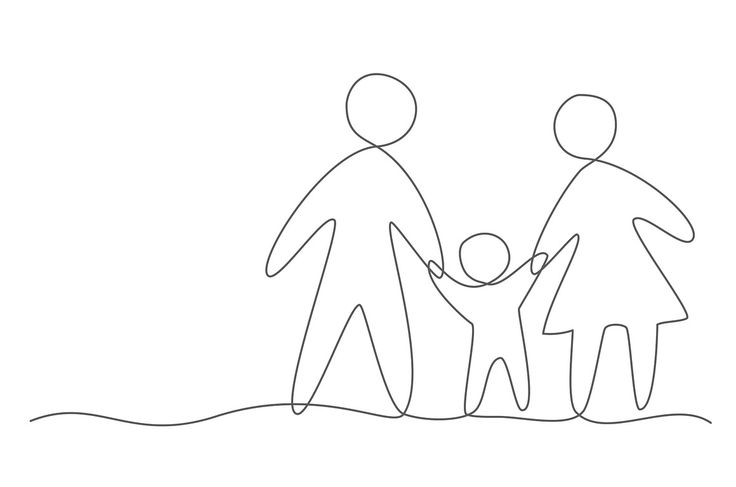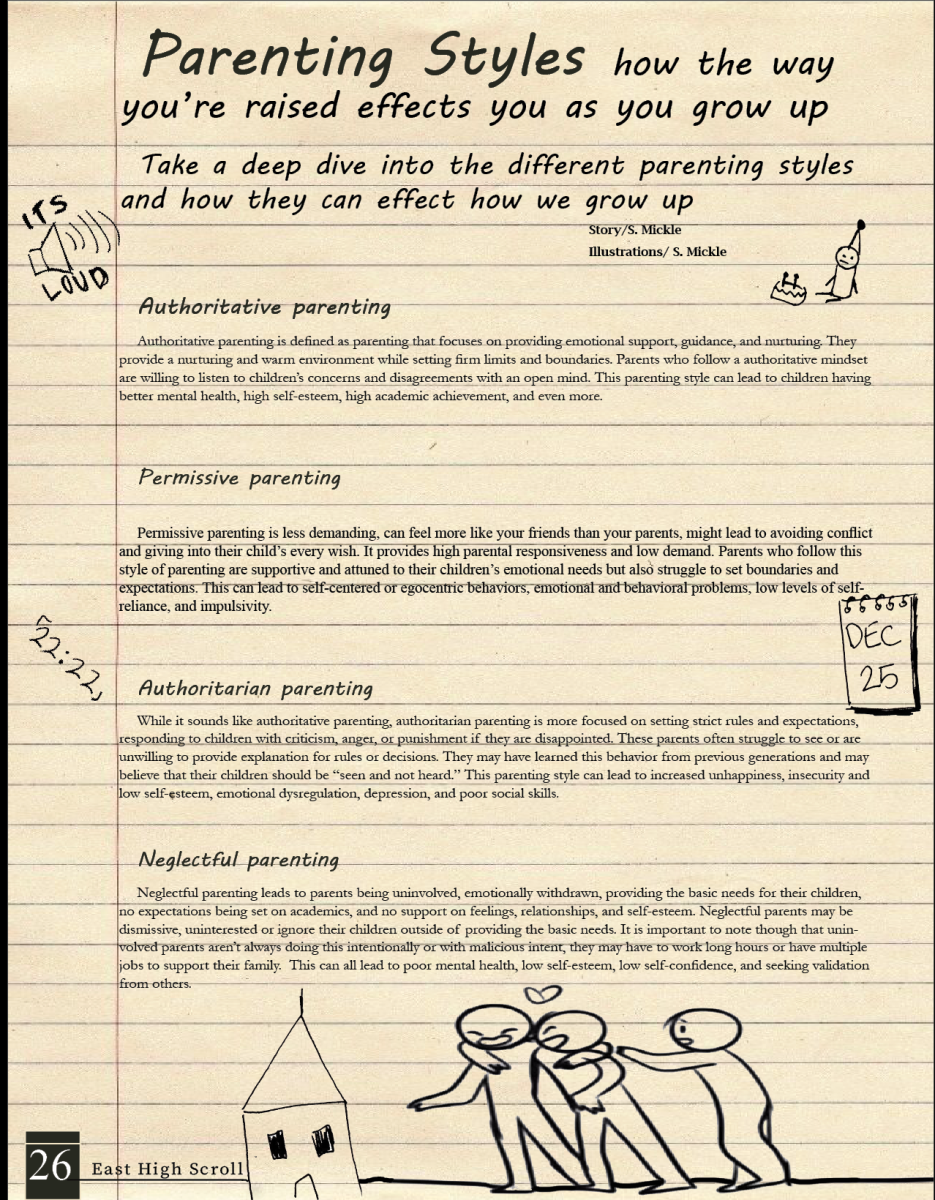There are so many different parenting styles and each has a significant impact on how people grow up. The way we are raised plays a huge role in the type of people we grow up to be and even how we go on to treat others. Join me in unpacking the different types of parenting and how they can affect us overtime.
Authoritative parenting:
Authoritative parenting is defined as parenting that focuses on providing emotional support, guidance, and nurturing. They provide a nurturing and warm environment while setting firm limits and boundaries. Parents who follow a authoritative mindset are willing to listen to children’s concerns and disagreements with an open mind. This parenting style can lead to children having better mental health, high self-esteem, high academic achievement, and even more.
Permissive parenting:
Permissive parenting is less demanding when parents can feel more like your friends than your parents. This style might lead to avoiding conflict and giving into their child’s every wish. It provides high parental responsiveness and low demand. Parents who follow this style of parenting are supportive and attuned to their children’s emotional needs but also struggle to set boundaries and expectations. This can lead to self-centered or egocentric behaviors, emotional and behavioral problems, low levels of self-reliance, and impulsivity.
Authoritarian parenting:
While it sounds like authoritative parenting, authoritarian parenting is more focused on setting strict rules and expectations, responding to children with criticism, anger, or punishment if they are disappointed. These parents often struggle to see or are unwilling to provide explanation for rules or decisions. They may have learned this behavior from previous generations and may believe that their children should be ‘seen and not heard.’ This parenting style can lead to increased unhappiness, insecurity and low self-esteem, emotional dysregulation, depression, and poor social skills.
Neglectful parenting:
Neglectful parenting leads to parents being uninvolved, emotionally withdrawn, providing the basic needs for their children, no expectations being set on academics, and no support on feelings, relationships, and self-esteem. Neglectful parents may be dismissive, uninterested or ignore their children outside of the basic needs. It is important to note though that uninvolved parents aren’t always doing this intentionally or with malicious intent, they may have to work long hours or have multiple jobs to support their family. This can all lead to poor mental health, low self-esteem, low self-confidence, and seeking validation from others.
Attachment parenting:
Attachment parenting is based on the concept that a parent’s connection and responsiveness to their babies needs has a lasting effect on their child’s future emotional health and relationships. These parents might take part in bed sharing, encouragement of physical closeness, and other behaviors that make the parents see kids being separated from their parents too often and too soon as a bad thing. However, they recognize that it is normal and healthy for a child to be dependent on their own when they feel like it. These behaviors might seem bad or too much, but it actually leads to healthier, more empathetic and connected adults.
Free-range parenting:
Parents who decide to follow the free-range parenting style encourages independence and self-reliance, allowing children to explore and learn through very little supervision. It is quite a controversial parenting style but when done properly it can be very beneficial. Some characteristics of this parenting style are unsupervised time for children, teaching essential life skills, encouraging independence, and allowing children to make mistakes. Effects of this style of parenting is confidence, mutual trust, and individuality but can also lead to increased risk of harm and in some cases, government involvement.
Positive parenting:
The last parenting style we will go into is positive or gentle parenting. This parenting style focuses on establishing a collaborative parent-child relationship. Parents practice empathy, respect, understanding and healthy boundary-setting. Benefits of this style are reduced childhood anxiety, improved parent-child bond, and positive social skills. The cons of this parenting style however are time consumption, parents needing patience, and the setting of boundaries can become a challenge.





